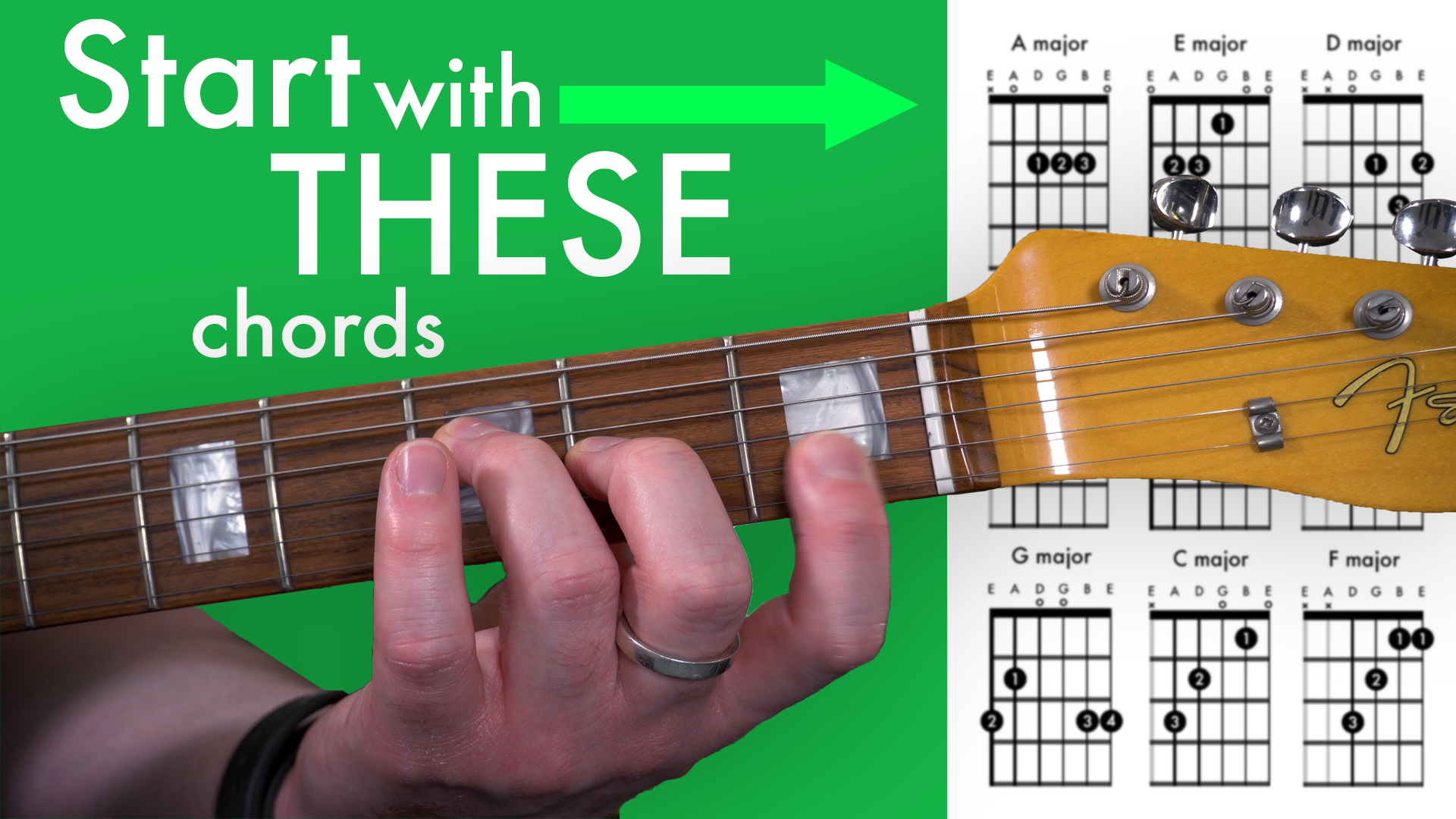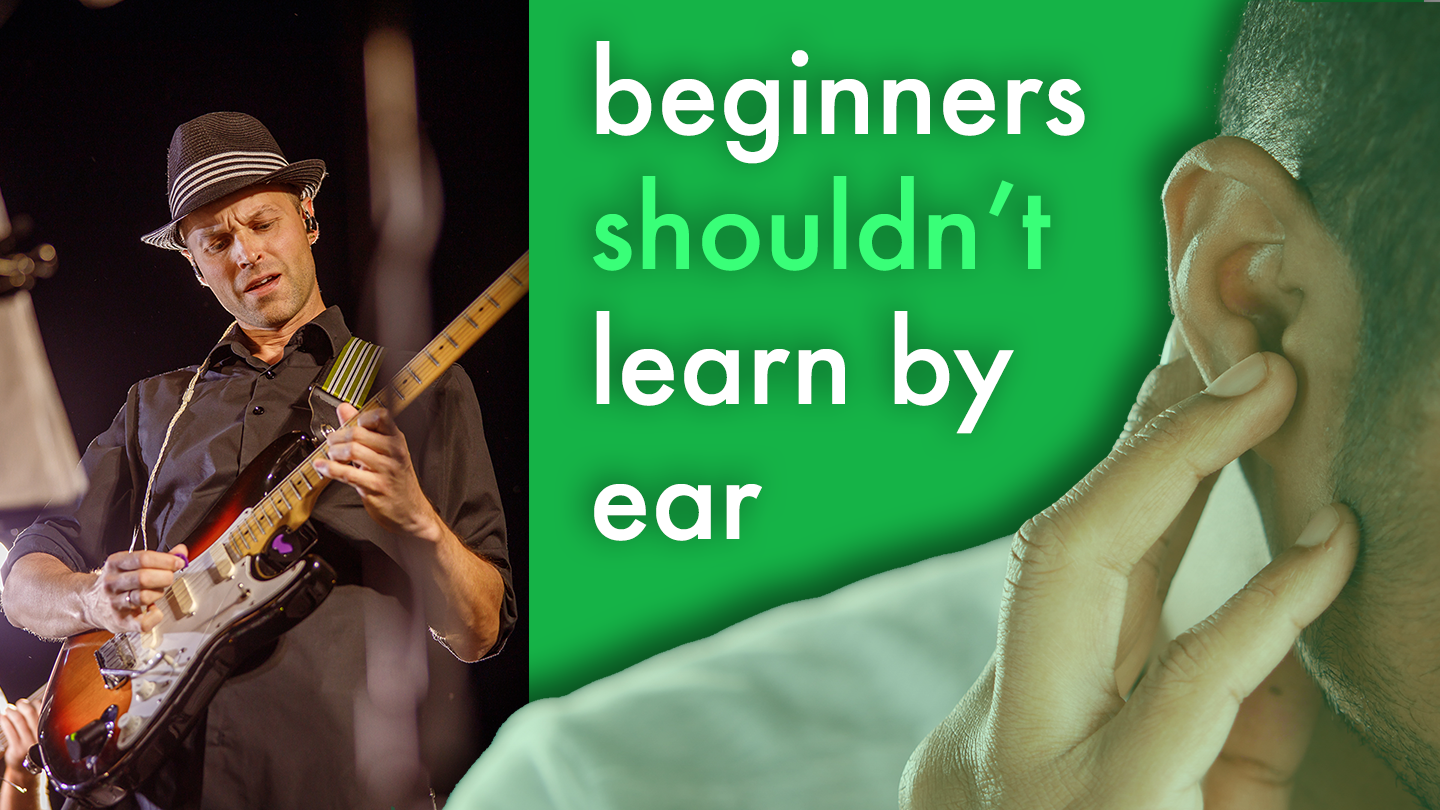Can you play the guitar in free play mode?
Have you ever played a video game where you unlock a free-play mode after finishing the level or main story? You don’t have to think as much. You just get to run around having fun. What was once frustrating isn’t as hard anymore. You might even consider it relaxing!
We can experience a similar situation when we’re learning the guitar.
As a beginner guitarist, learning something new might take a lot of focus. You’ll be using all of your mental bandwidth which is pretty draining. I definitely wouldn’t call it relaxing.
But if you stick with it, you’ll develop fluency with the technique and find it takes up barely any of your mental bandwidth. Now you’re able to relax into what you’re doing.
You’ve unlocked the level. Now it’s just fun.
I’ve often had students complain that they didn’t manage to practice as much as they wanted during the week because they got home from work tired, mentally drained, and did not want to play the guitar.
There’s nothing wrong with that.
Just because you can physically play the guitar doesn’t mean that you’re in the right headspace for serious practice.
You might not have the mental bandwidth available right now. If you still want to practice, just spend some time playing. Not practising.
The difference between practice and playing
Practice is when we are actively working to improve something we find difficult.
We haven’t developed fluency with it yet and it takes a lot of our mental bandwidth to make sure we’re doing it correctly. Hopefully, we enjoy the process of learning and getting better at the guitar, but practice isn’t designed to be fun. Sometimes there are aspects of it we just have to do.
Playing the guitar is just fun.
We’ve integrated our three types of understanding (intellectual understanding, physical understanding, and aural understanding) properly and no longer have to use as much of our mental bandwidth to make sure our hands are behaving themselves. We’re able to think creatively and trust that the muscle memory we’ve developed will allow us to do what we want to do.
We’re in free-play mode. Doing what we can already do fluently. You might even find it relaxing!
Feeling like you’re not in the right frame of mind to sit down and practice isn’t just something that beginners experience. After a long day working on other stuff, I’m not necessarily in the headspace to sit down and do some serious technical or theoretical practice.
Here are some tips to help you get the most out of your practice sessions during the week:
Start your practice session with the most difficult things you’re working on.
Break up your practice into smaller sessions if you can’t set aside a larger block of time.
Practice things that don’t require as much mental bandwidth later in the evening or if you feel like you don’t have the energy for intense focus.
Set aside time for playing (instead of practice) to keep things fun
For me, mindless practice often looks like learning songs, writing riffs, or developing muscle memory for an exercise I’m trying to get down. These activities don’t use a lot of my mental bandwidth and I find them really good things to practice if I don’t feel like I have the energy for an intense session.
Don’t worry if the things that I find mindless are different from what you’re working on. Depending on where you’re at in your guitar-playing journey, you’ll have developed fluency with different things. Recognise what aspects of guitar playing you find less mentally taxing or even relaxing and mess around with those when you’re not feeling up to working on something else.
Different stages of the guitar-playing journey have different free play modes and that’s okay.



A guitarist who has learned all the notes on the fretboard: Can more effectively learn scales and chords; Has a better understanding of keys, intervals, and scale degrees; Is able to more easily memorise songs; Has a greater capacity to understand music theory; Is more effectively able to develop their aural skills; Gets ‘lost’ far less frequently when they are improvising on the guitar.